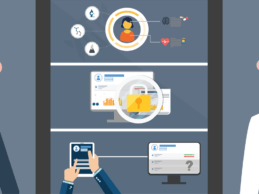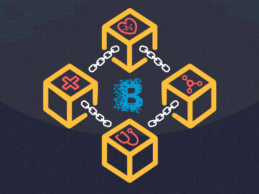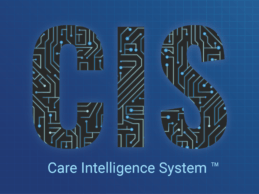COVID-19 has presented healthcare with a challenge like no other, with nearly nine million cases all over the world and over 470,000 lives lost. The speed of the outbreak and the disruption caused by it has created unforeseen challenges for communities and economies, and it’s especially apparent in healthcare delivery. Healthcare systems in nations around the globe have dedicated substantial resources to respond to the pandemic and the growth has only somewhat stymied.
While the U.S.
Read More
Tackling COVID-19 with Telemedicine on an FHIR-Enabled Data Activation Platform
With the incidence of new COVID-19 cases expanding by the day, those in healthcare are accelerating their search for any available tools or medications that could stem the outbreak.
Modern medical organizations have used technology to track and treat viruses in the outbreaks that have occurred over the last few decades. The current COVID-19 crisis makes innovative virtual care solutions an indispensable tool as the virus spreads across communities.
The Rise of Virtual Care During the
Read More
Measures Adopted by Public Health Agencies to Mitigate the Consequences of COVID-19
The number of people infected by COVID-19 worldwide is quickly moving toward 2 million and almost 33% of them are from the U.S. The circumstance is past dreary and administrative bodies in the U.S. are acting rapidly to contain the harm coming about because of the spread of this novel infection.
Starting with the entry restrictions, federal agencies and healthcare regulatory bodies have executed a few measures to ensure the wellbeing and interests of healthcare professionals, program
Read More
Is Artificial Intelligence The Answer To A Plethora of Healthcare Problems?
The world of healthcare is changing, and with it, our approach to understanding the concept of patients and doctors, ways of delivering care, and building a better relationship between every member associated with it is also changing. Like other industries, healthcare is also going through a major revolution, and Artificial Intelligence (AI) stands at the core of it.
Biological sciences and medical research are rapidly changing fields. Each day, we witness advances in genomics, imaging, and
Read More
7 Key Ways to Liberate, Rather Than Oppress Physicians
What if LeBron James spent half his day manning the ticket windows and phone lines for the Los Angeles Lakers? Would he be as great a basketball player as we know him? Or would he be completely satisfied with the road he went down? James is one of the best basketball players of our time, and none of his accomplishments would be nearly as extensive if he didn’t do what he did best- play the game.That is one of the biggest problems in healthcare. The physicians, the ones standing on the front
Read More
The Existing Challenges with EHRs and Physicians’ Workflows
EHRs grew out of the vast computers that looked after a hospital’s internal processes. The physician workflows, on the other hand, were an afterthought. Imagine a Wendy’s restaurant. You place an order and the guy at the counter rings up and relays your order to the kitchen. When the order comes, the fry guy drops a basket of fries in the fryer, the guy at the burger counter flips a patty, the girl over at the soda machine fills up your choice of soda, arranges your order on a tray, and rests it
Read More
The 3 F’s for Care Innovations— Flow, Feasibility, Flexibility
Recently, I came across a story on a high-end care facility situated in Philadelphia. The said center was equipped with highly advanced machines, served high-income patients, and their services were fairly ‘integrated.’ A patient could visit a PCP on one floor and get diagnostic imaging done on another. However, any two systems did not connect. An X-ray image had to be first printed, faxed, and then again scanned in the physician’s desktop— taking a fair amount of time, and image quality was
Read More
5 Benefits Of Using Blockchain Technology in Healthcare
Blockchain- the technology that took the world by storm by its revolutionary work in data management and exchange, especially in the financial sector. Its immense success across different industries has left the healthcare world rattling with questions too. People are calling it the ‘answer to interoperability,’ and the ‘technology that can solve healthcare’s looming problems,’- but if the confusion looms, blockchain will take double the time to make a difference in healthcare.Let’s try to
Read More
6 Reasons Why Healthcare Needs The Internet of Things (IoT)
Editor’s Note: Abhinav Shashank is the CEO & Co-founder at Innovaccer Inc., a datashop integrating complex data across multiple distributed sources to give healthcare organizations greater insights to provider better care.Technology can never replace humans because the ultimate decision-making authority always lies with the individual. He or she can, however, in the course of time, opt for technological solutions that simplify their work and bring about efficiency.Convenience. Efficiency.
Read More
Care Intelligence System: The Revolution of Innovations in Value-based Care
Keeping a system of records for storage and backup has always been a must for healthcare organizations all over the U.S. As the method of storing data went from paper to electronic, healthcare became more and more adept at collecting data and archiving it.However, the route of exchanging meaningful information was still lost on many. As of 2017, a majority of the health industry has adopted EMRs, however, gaining meaningful insights out of them is still an unfulfilled promise.The real trouble
Read More







